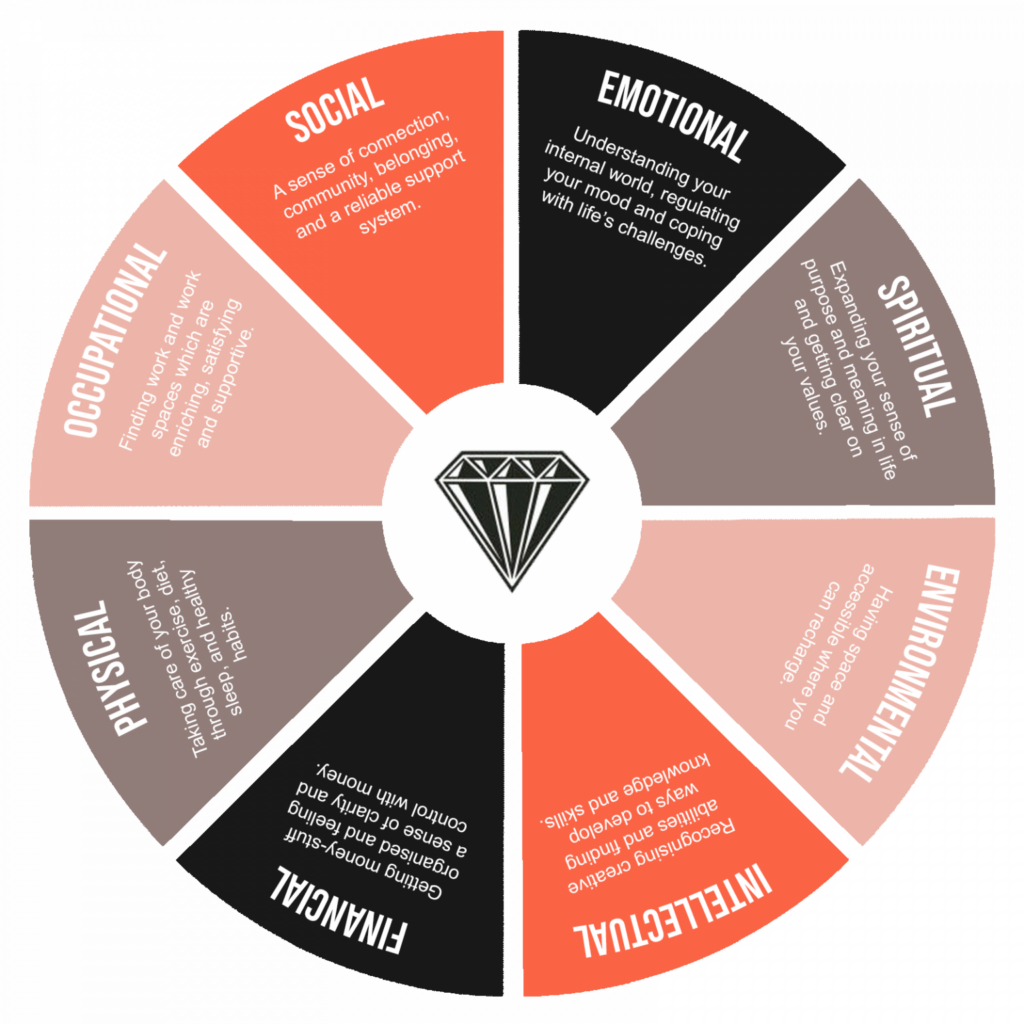Choose an Option
WHAT IS SELF CARE?
“We need to be able to separate ourselves from our work and find a healthy balance where we can also focus on self care strategies like mindfulness, journaling, exercise etc.” – Bridget Hustwaite
Self care is the art of taking care of yourself so that you can be healthy, happy and get stuff done. It’s made up of the habits and practices that you put in place to ensure that you are meeting your own physical/social/emotional needs. Far from being selfish and self-indulgent, engaging in self care means you have greater capacity to enjoy a sustainable career, resiliently face life’s inevitable challenges, and extend support out to others – making you a better friend / partner / parent / bandmate / collaborator / leader.
Self care is hugely important when it comes to taking care of your emotional and physical wellbeing. It is essential for anyone, but especially for those who engage in regular tasks (whether for work or home-life) that are draining, unpredictable, stressful or demanding. With the uncertainty and pressure that goes hand-in-hand with making a living in music, self care is essential if you want to keep your body and mind thriving, and make room for inspiration and creativity.
When you don’t prioritise self care, you are at greater risk of developing serious mental health conditions and veering into burnout territory.

SELF CARE IS A TEAM SPORT
According to our industry-wide survey, over 63% of music workers said that positive relationships with the people in their life had the greatest positive impact on their mental health and wellbeing.
SIGNS YOU MIGHT NEED SOME SELF CARE…
- You struggle to control your reactions to others and are prone to outbursts.
- You aren’t getting as much satisfaction or pleasure from things that used to “spark joy”.
- You engage in harmful behaviours to avoid or escape thinking about/doing work.
- You cancel plans, distance yourself from others and isolate yourself.
- There is an increase in complaints or conflict at home or on the job.
- You have way too much or not enough empathy for other people, which causes you to either over invest in their issues or conversely, not really give a shit.
- You feel resentment or apathy towards your job or creative outlet that used to inspire you.
- You’ve adopted a negative view of people in general.
THE WELLBEING WHEEL
A wellbeing wheel illustrates the slices of life that contribute to a sense of personal fulfilment, connection and wellbeing. It can help give perspective to the areas of your life in which you thrive and those which need some attention.

SELF CARE: THE BASICS
Look after your body.
Keep your body healthy through a good diet, regular sleep and exercise.
Nurture your relationships.
Your relationships are a great point of connection and support (even though they might piss you off sometimes). Make time for the important people in your life. Be open and vulnerable with people you trust, and talk about how you’re feeling and how you’re coping.
Check your thoughts.
Notice how the way think impacts on the way you feel about situations and other people. Challenge thoughts that are not accurate or helpful. Do your best to give people the benefit of the doubt, and try to look for the good in people and situations.
Find time for fun.
Make time for healthy distractions away from work and obligations, e.g. watch a fun movie, go see a show, find a new hobby or sport, go out with friends.
Tend to your environment.
Make your home or work space something that soothes and inspires you. Make time to clear up mess or clutter.
Nature time!
Make time to spend in nature – from inner-city park strolls, to beachside walks, to rambling bush adventures. Research has shown that time spent in nature is relaxing and restorative.
Set boundaries.
Be clear about your role and purpose at work, and what your needs are in your relationships. Be assertive with your communication.
Understand your drainers.
Develop an awareness of the situations, tasks and relationships that tend to drain your energy and/or light your emotional fuse. Move into these situations or interactions mindfully, perhaps prepping with a breathing or grounding exercise. Minimise these situations or interactions where possible.
Make time for creativity and growth.
Get clear on your values.
HOW TO TAKE ACTION
Self care doesn’t come easy for lots of us. It can be especially challenging to prioritise if you’re suffering from a mental health condition or if you’ve experienced recent life challenges. If you’re feeling like you need a little help taking care of yourself, but don’t know where to start…
Learn more about different approaches to self care. Remember that the same approaches won’t work as well for everyone. Experiment with a Self Care menu, sampling different practices and sticking with the ones that fit best for your personality and lifestyle. Here are a few evidence-backed practices which are nourishing for the body & mind:
> Regular exercise (such as climbing, running, cycling, swimming, dancing)
> Healthy eating (balanced, wholesome, nutritious)
> A way to slow your mind & body down (yoga, meditation, journalling)
> Good quality restorative sleep
> Time outdoors, ideally somewhere with sunlight and greenery
> Keep a gratitude journal (guiding your attention to the good things in life)
> Staying connected with friends and loved ones
Ask for help and support as soon as you notice yourself struggling. Reach out to family and friends, or give us a call on the Wellbeing Helpline ~ a helpline dedicated to to supporting folks working in the Aussie music industry. It’s free, confidential and available 24/7.
Find a mental health practitioner that’s right for you (ask around, get on Google, or ask your GP for recommendations)
Check out these great resources:
COOL APPS TO HELP YOU BUILD & SUSTAIN HEALTHY SELF CARE HABITS
CHECK OUT OUR FREE SELF CARE WORKSHOP + ACTIVITY BOOKLET
On My Mind: Self Care for the 21st Century
Check out our free, 50min workshop on self-care and how you can make it work whilst balancing a busy career in music.




